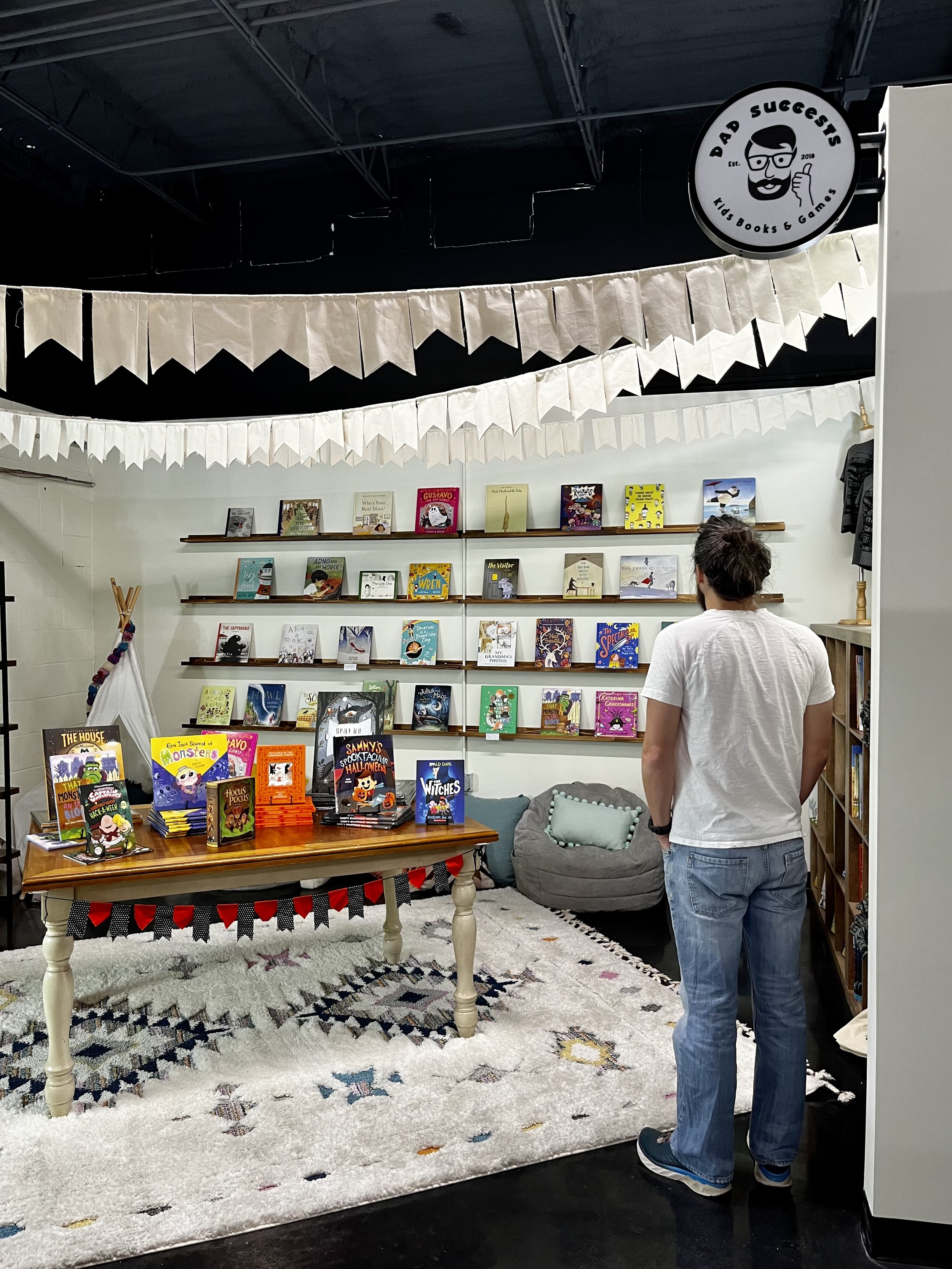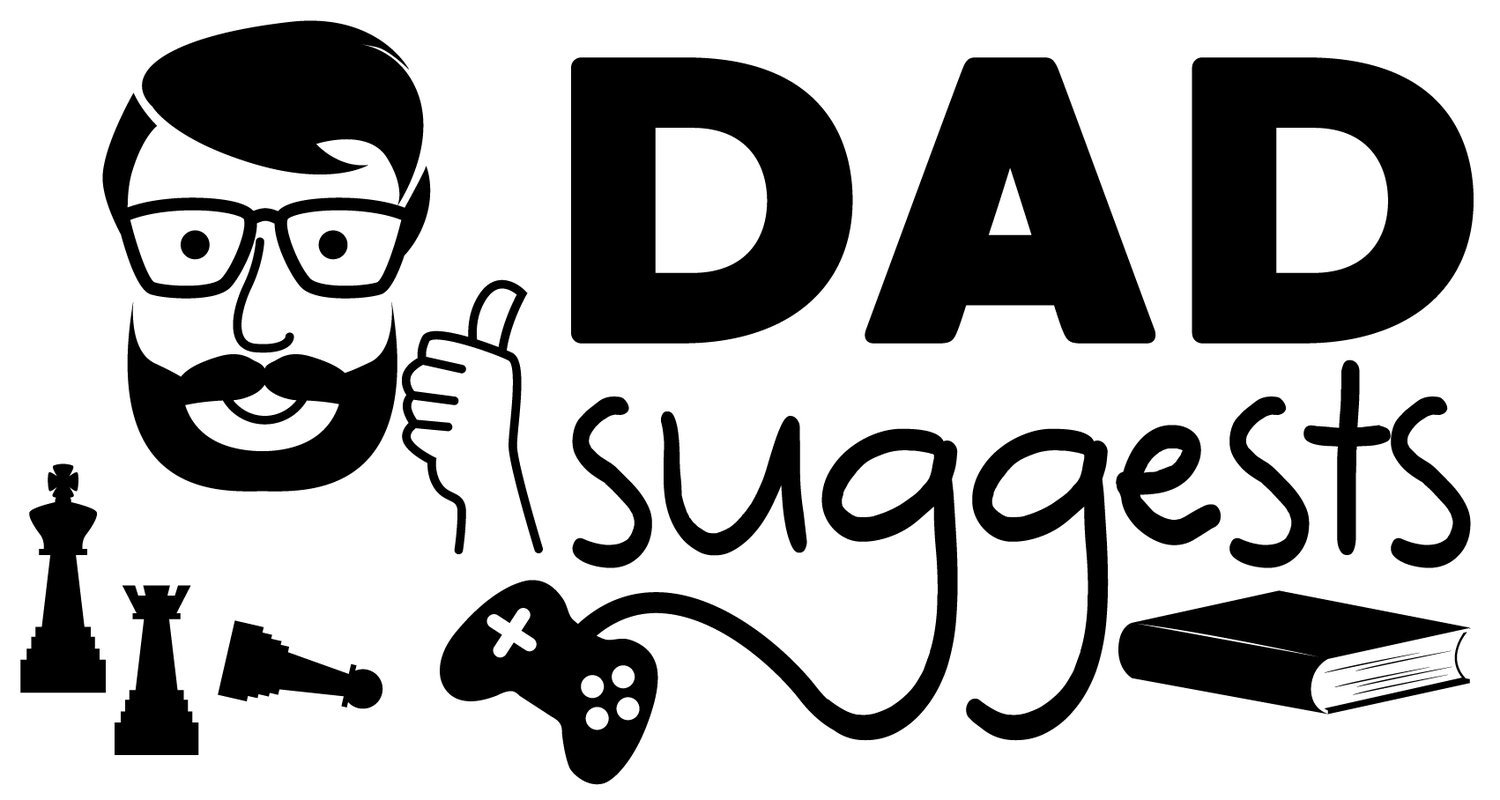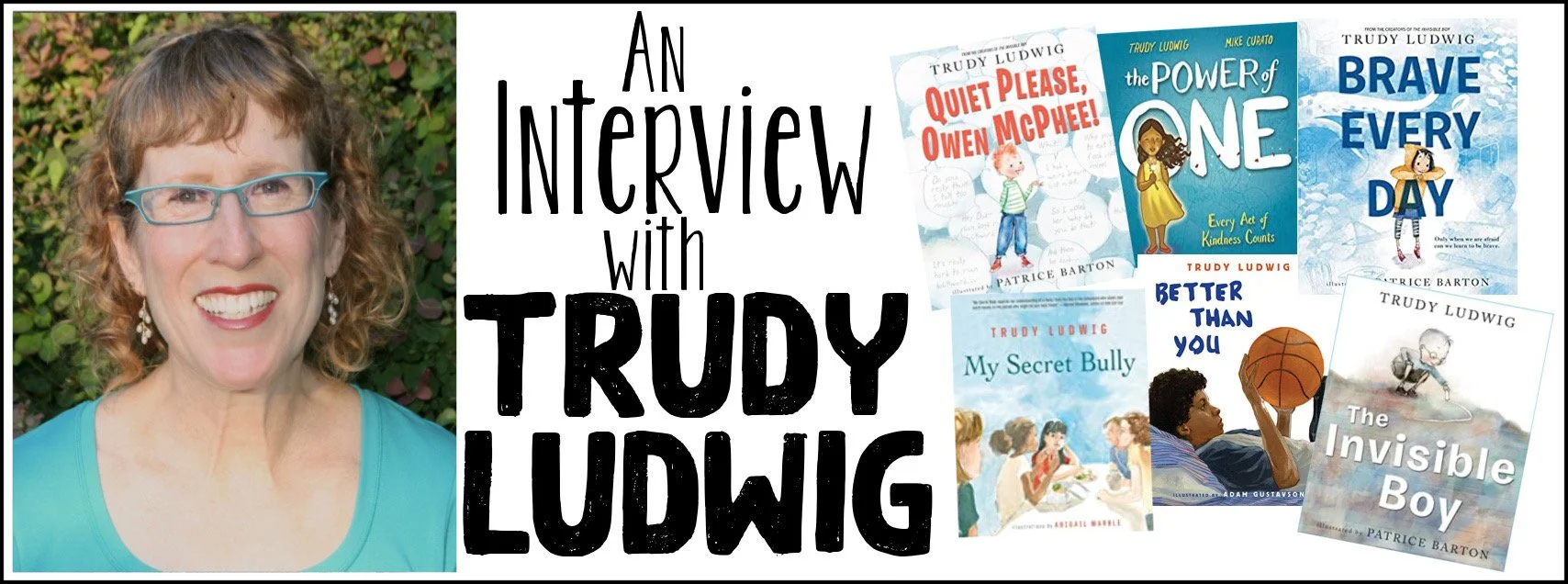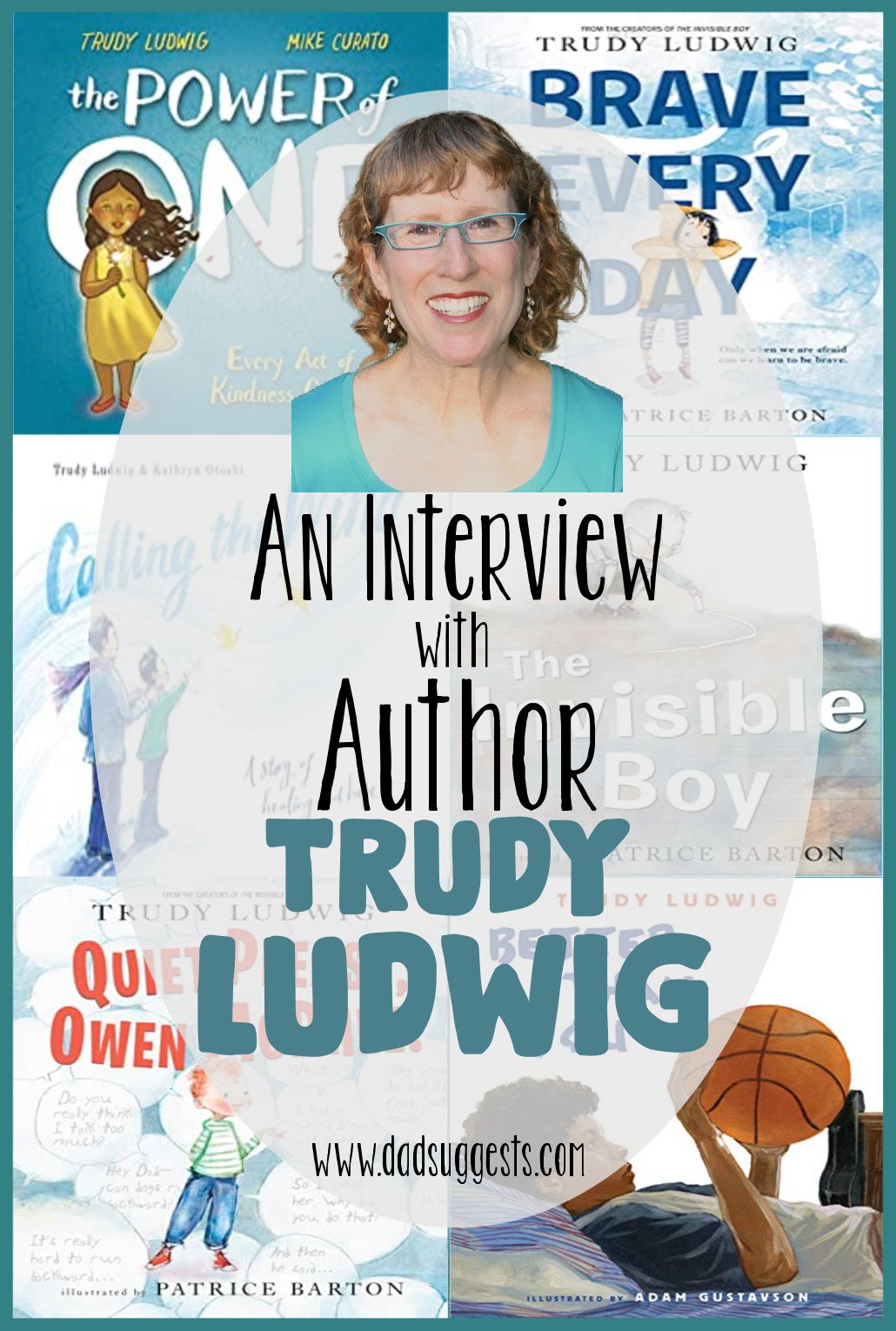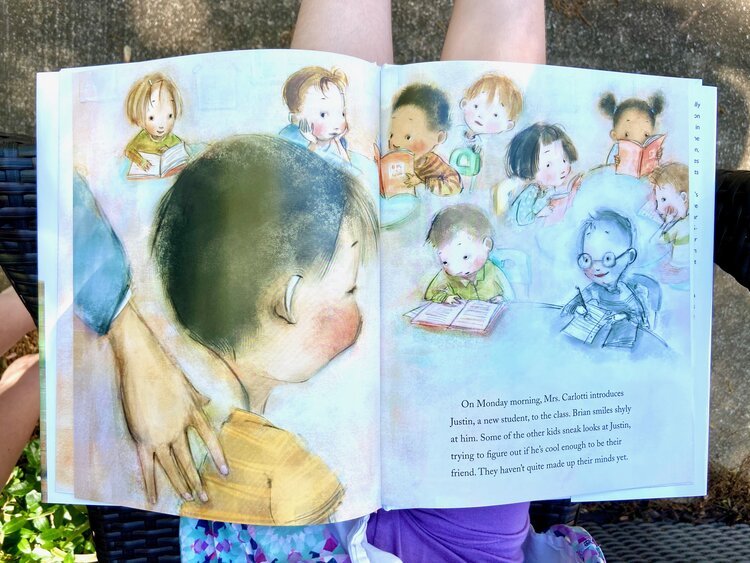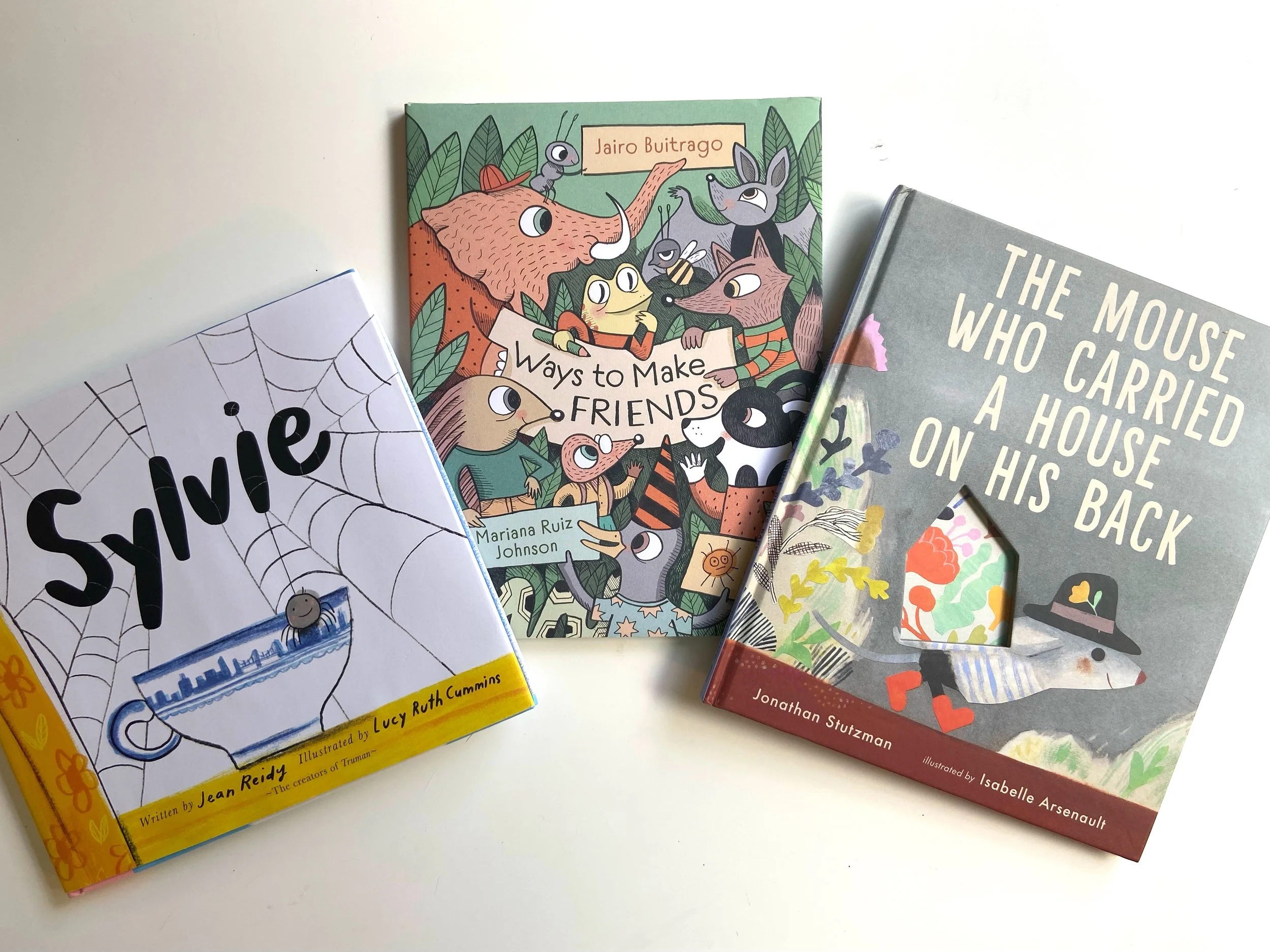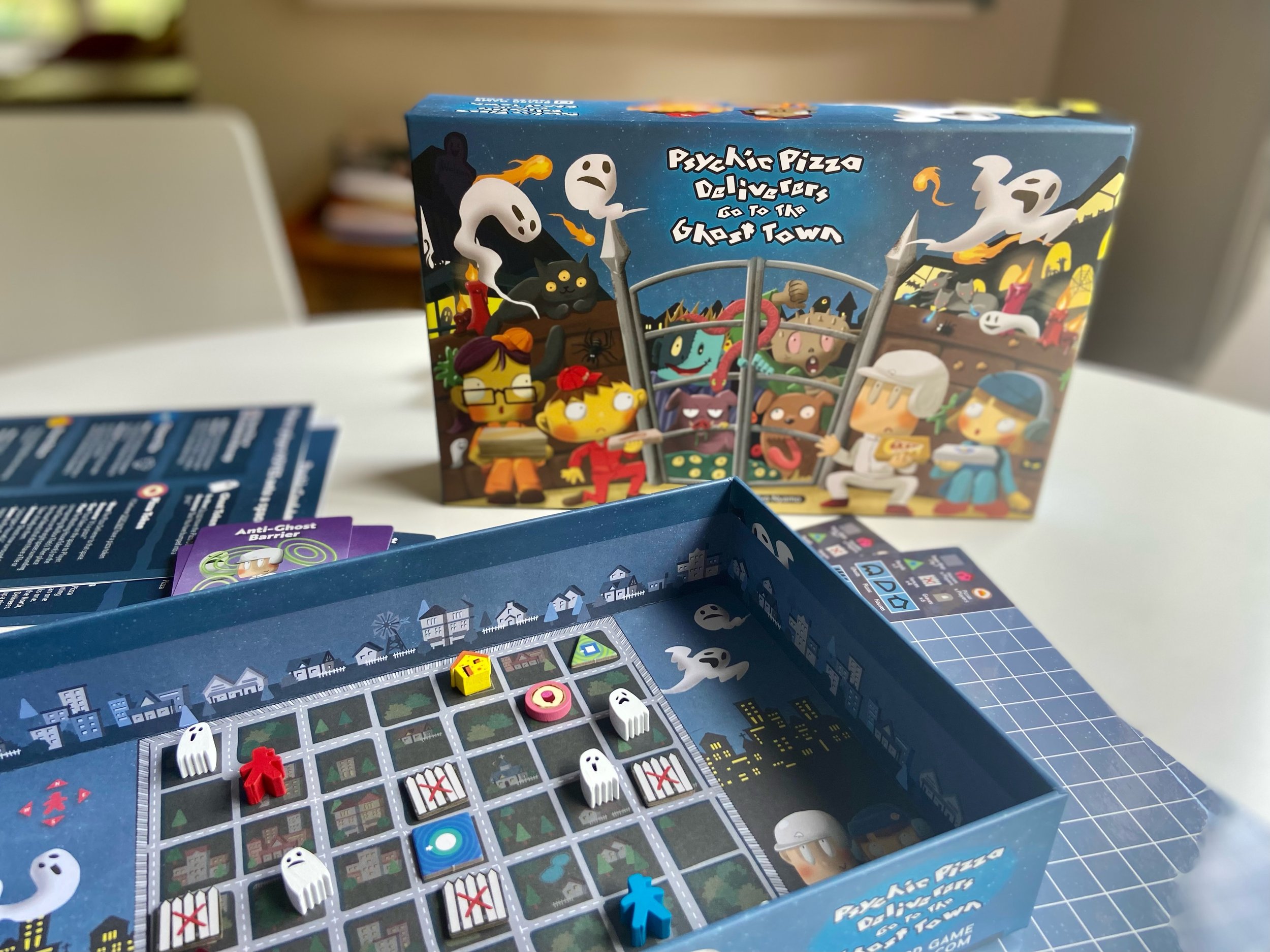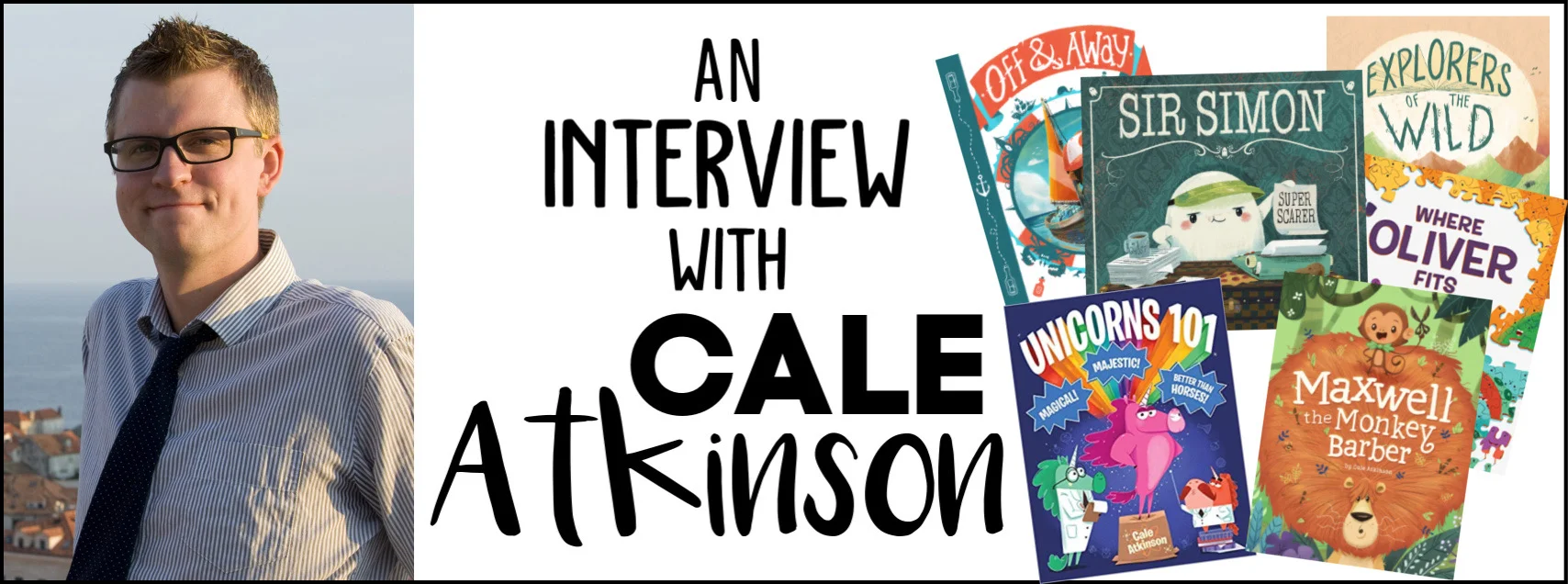An Interview with Author Trudy Ludwig
If you’ve been reading Dad Suggests for a while, you’ve undoubtedly heard us talk about the work of Trudy Ludwig in the past. In fact, our featured article on The Invisible Boy was one of the first articles to ever appear on our website.
I started up Dad Suggests because we were collecting all of these wonderful books and games for our children, and I wanted other parents to know about our favorites. So I like to think that writing about The Invisible Boy so quickly after the launch of the website goes to show how highly we think of it.
Through the years I’ve also talked about and returned to The Invisible Boy quite a bit. We’ve added it to lists including our top 10 picture books with life lessons, and our top 10 picture books about empathy. Suffice it to say, I think every kid needs to hear this story, and that parents and teachers need to be familiar with Trudy Ludwig.
The book had a big impact on me as a young dad, and we read it to our kids often. The Invisible Boy directly led to me only wanting to ask our son’s teacher one thing - is he kind and empathetic with the other kids? It’s legitimately the only thing I wanted to know at parent teacher conferences, and that remains true to this day.
This year, Ludwig has released another collaboration with illustrator Patrice Barton called Brave Every Day, and I’m very excited to say that she was kind enough to take the time to talk about her newest book with us. Brave Every Day is another very beautiful book with a sweet message of empathy, with a big focus on how we can support each other. And I’m excited to share with you now some behind-the-scenes thoughts on it with the author herself.
Ludwig is well known in the industry as a champion of empathy, and goodness knows we need our champions. Parents and teachers everywhere owe her a debt of gratitude for her never-ceasing fight of the good fight. We need her books, and kids absolutely need to hear these messages.
Thank you so much for taking the time to talk to us, Trudy! Let’s start with some essential warm-up questions. Besides your work - what's your favorite kids book?
It’s really hard for me to narrow my choices down to just one book, so I’m going to have to list a few of my all-time favorites: Counting By 7s by Holly Goldberg Sloan; Charlie and the Chocolate Factory by Roald Dahl; The True Story of the Three Little Pigs by John Scieszka, and Wonder by R.J.Palacio.
What's your favorite board game?
Scrabble—hands down.
What's your favorite movie?
As with books, I don’t have one favorite movie. I really loved the Harry Potter movies and the film Love Actually.
Growing up, who was the biggest role model in your life for how to treat other people?
My mother was my biggest role model. After raising five children, my mother went to college in her late 40s at the same time I, her youngest child, left home to attend college! She ended up becoming a marriage and family therapist and certified art therapist. My mother chose a career that helps empower people to become more emotionally resilient. She modeled for me grit, perseverance, and empathy.
Could you tell us the story of the specific moment in your life when you decided you were going to become a champion of empathy? Where did your desire for this mission come from?
Years ago, when my daughter was in elementary school, she was emotionally bullied by some friends. At that time, there really weren’t any age-appropriate children’s books that specifically dealt with relational aggression. I decided to write stories to fill this resource gap to help empower kids when it comes to making healthy friendship choices.
Trudy Ludwig first collaborated with Patrice Barton on The Invisible Boy.
When you had your first book idea, how did you make it all happen? What were your next few steps in going from an idea about bullying to being published and finding so much success?
My first book idea came to me in the form of a title: My Secret Bully. That title served as my anchor, so to speak, for my manuscript. I kept revising my story until I felt it was the best it could be before sharing with bullying prevention experts for their feedback and possible endorsement. I also shared my story with kids of different ages to make sure my plot, vocabulary usage, etc. were age-appropriate for my targeted audience.
I networked with other writers and joined the Society of Children’s Book Writers and Illustrators (scbwi.org), a wonderful organization I highly recommend to anyone interested in the children’s book publishing industry. I also researched agents and publishers. I then submitted my manuscript to my top choices. I received rejections along the way, which is par for the course. Eventually I found a small publishing house interested in acquiring my manuscript. That one story led to a midsize publishing house acquiring more of my picture book stories. Random House Children’s books acquired that midsize press, and subsequently, more of my manuscripts. I think the reason why my books have been successful all these years is that kids find my characters relatable and their experiences realistic when it comes to social-emotional issues they face on a daily basis.
After your first book, My Secret Bully, was inspired by the experiences your daughter had with bullying - did other favorites like The Invisible Boy or Brave Every Day have similar origins? Where did those particular ideas come from?
With The Invisible Boy, I wanted to share with kids that, at some time or another in our lives, we all can feel invisible like Brian in the story. Who hasn’t been excluded from a group, game, or activity? Even grown-ups like myself experience these feelings. I also wanted to show that it doesn’t take superhero efforts to make someone feel less invisible; all it takes is just one person to reach out and be kind to another person.
I wrote Brave Every Day because many teachers, administrators, and school counselors have shared with me their growing concerns with the significant increase in anxiety over the years among students as young as preschoolers. In fact, they consider it to be one of their top concerns, right up there with friendship and bullying issues! Elementary staff familiar with my work have expressed a need for children’s books that help generate more thoughtful discussions about anxiety in an age-appropriate way.
Camila’s worries visit her at night too in Brave Every Day.
When and how did your collaboration with Patrice Barton begin? What do you think it is about her art that works so well with your stories of empathy?
My first picture book collaboration with Patrice Barton was The Invisible Boy, published in 2013 by Alfred A. Knop/Random House Children’s Books. Katherine Harrison, my wonderful Knopf editor, did a phenomenal job pairing Patrice with my story! Patrice is so professional and really gets kids’ social dynamics in such a visually playful and poignant way! Her ability to show empathy in her artwork is why she is in such high demand as a picture book illustrator. Our first collaboration has led to two more: Quiet Please, Owen McPhee! and, most recently, Brave Every Day.
What’s the biggest challenge we are facing in the battle for raising a kind and brave generation of kids? What can we do to overcome it?
I think the biggest challenge is getting our kids to be more emotionally resilient. We will always live in a world where bad coexists with good. I think it’s important for adults to share with children that while we can’t get rid of all the hurt in their world, we can help them get through the hurt.
The important thing I’ve learned is that even if adults and kids can’t solve their problems right away, it really helps to have allies—people who will listen to your problems, take them seriously, and help you get through the hurt with kindness, compassion, and support.
Your newest book, Brave Every Day, is about a worrier named Camila that has a lot of “what ifs” and “I can’ts” in her head. Do you think this is a timeless tale, or a timely tale? In other words, are there more kids with worries like Camila than there used to be?
I think it is both a timeless and timely tale. It is timeless because worries and fears have been around since humans have been around. It is timely because 24/7 access to bad/stressful news (i.e., COVID pandemic, the war in Ukraine, climate issues / global warming, school shootings, etc.) has, unfortunately, turbo boosted this upward trend in anxiety.
I love how Camila finds her bravery through a friend named Kai, much like how Brian found Justin in The Invisible Boy. Except this time it’s the main character overcoming her fear in order to help the new friend. Are you consciously trying to empower kids to be there for each other during your writing process?
Absolutely! We humans are social beings. We have the need to connect and engage with one another. We can do this in a positive, pro-social way or in a negative, anti-social way. It’s all about the choices we make. I want kids to see that they have the power to choose kindness.
Camila is a worrier in Brave Every Day by Trudy Ludwig.
Unfortunately there are still lots of kids who feel invisible or scared in our world. What do you hope these children find inside your book?
I hope Brave Every Day shows readers of all ages that we worriers are true warriors because we push ourselves beyond our comfort zones every single day to do what needs to be done--despite our fears. When it comes right down to it, only when we are afraid can we truly learn to be brave.
I’m giving you a magic wand, and you can wave it to guarantee that every parent in the world does this one thing when raising their kids. What is it?
Read diverse stories to and with your kids. Any fiction worth its literary weight shows the characters facing problems, obstacles, and issues, and their subsequent efforts to address or overcome them. Stories are wonderful supplemental tools for homes and classrooms to help strengthen our little ones’ social and emotional learning (SEL) abilities (i.e., empathy, self-awareness, emotion regulation, problem solving, and relationship skills). While literature alone will not change the world, it can help change how we think and act in the world. Neuroscientists have found in their research studies that well-written literature can actually promote empathy in readers. It has the potential to encourage us to question and challenge our existing beliefs, attitudes, and behaviors. It can open our minds to the possibilities of change and, ultimately, our ability to be changemakers ourselves.
You’ve touched on so many different topics related to parenting and empathy in your books - from insincere apologies, to letting others have a chance to speak, and so much more. Are there any more angles about empathy that you still want to tackle? Do you have any ideas for next books that you can share?
I’ve been closely collaborating with author-illustrator Kathryn Otoshi on Calling the Wind, a story to help young readers experiencing loss (i.e., death, divorce, a way of life, etc.). We hope that children, along with the adults who work with them, will find our story a soothing reminder of the universal healing power of human connection and hope. Calling the Wind will be released this October 4!
What’s the best way for people to follow you and get updates on your work?
They can contact me through my website (www.TrudyLudwig.com) or via social media (Twitter, Instagram, Facebook, Pinterest).
Thank you very much for taking the time to chat with us!
You’re very welcome, Ryan! Thank YOU for supporting my work!
I hope you enjoyed our interview! Have you read any of Trudy Ludwig’s stories before? Which one is your favorite? Let us know in the comments!
